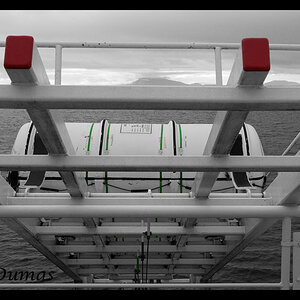JamesD
Between darkrooms
- Joined
- Mar 20, 2005
- Messages
- 1,054
- Reaction score
- 43
- Location
- Living in Snapshot reality.
- Can others edit my Photos
- Photos NOT OK to edit
I have a patron. His name is Ed. He's done more for me in my quest to learn photography than anyone else. He sold me the enlarger for $75, then "threw in" perhaps $200 worth of "extras." Maybe more.
I love this man; he runs the shop down in Enterprise. I hope and pray he gets to stay in buisness.
Anyway, thanks to Ed, I now have an unopened box of a hundred sheets of 8X10 Panalure. Hopefully, there're no markings on the back; if not, it'll be wonderful to use for paper negatives, since it's panchromatic. That's 400 shots! Enough to keep me occupied, most likely, for a year or two.
Also, some dental X-ray film. Not sure what I'm gonna do with it, but I'll find something. Has anyone ever used it before? It's Kodak Ultra-Speed D, Safety 1 Film, Occlusal. I've got 20 pieces.
I love this man; he runs the shop down in Enterprise. I hope and pray he gets to stay in buisness.
Anyway, thanks to Ed, I now have an unopened box of a hundred sheets of 8X10 Panalure. Hopefully, there're no markings on the back; if not, it'll be wonderful to use for paper negatives, since it's panchromatic. That's 400 shots! Enough to keep me occupied, most likely, for a year or two.
Also, some dental X-ray film. Not sure what I'm gonna do with it, but I'll find something. Has anyone ever used it before? It's Kodak Ultra-Speed D, Safety 1 Film, Occlusal. I've got 20 pieces.




![[No title]](/data/xfmg/thumbnail/33/33490-cbbf9df0a1c31291ee7a3759afe943cc.jpg?1619736003)


